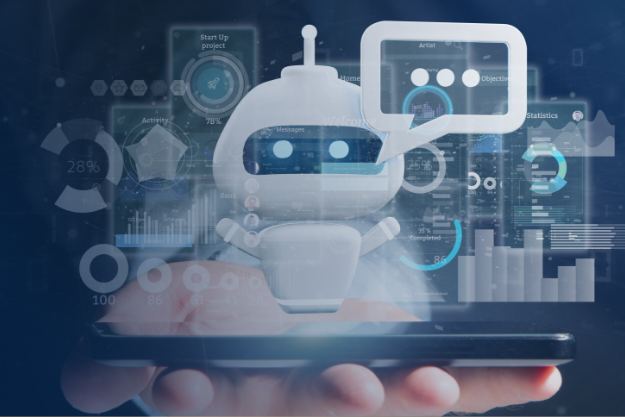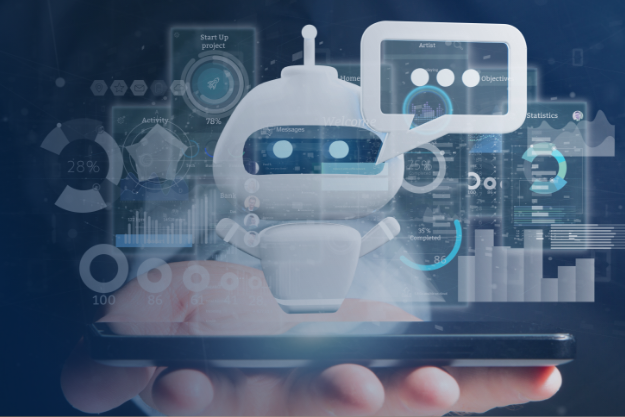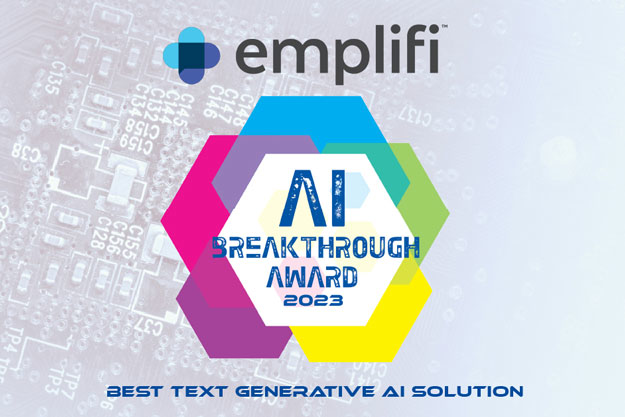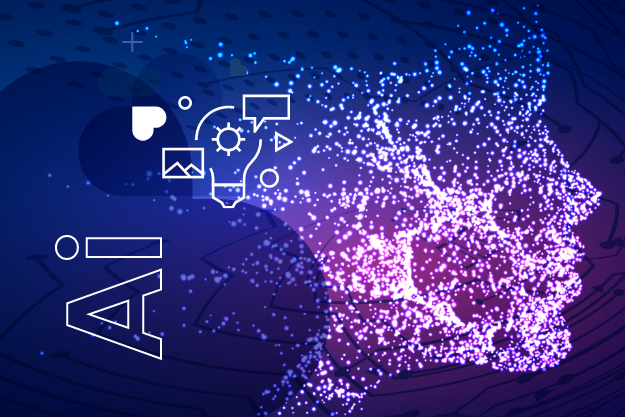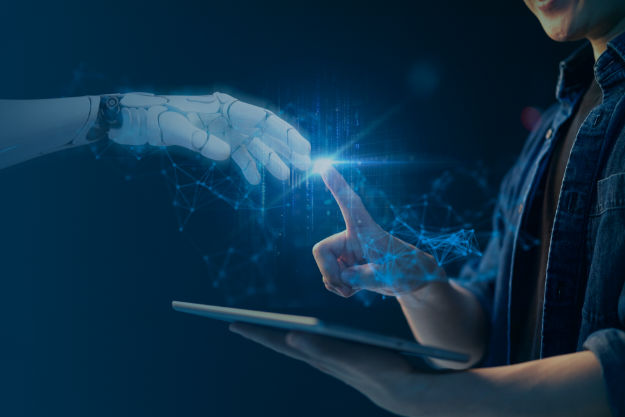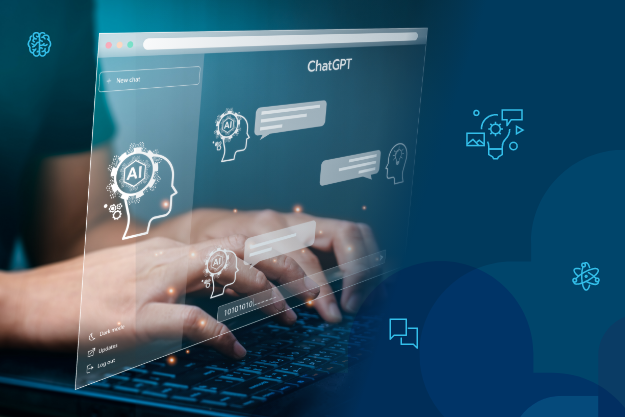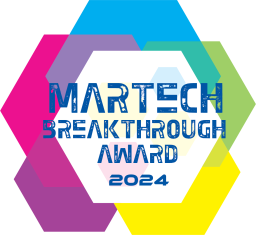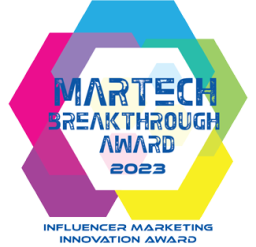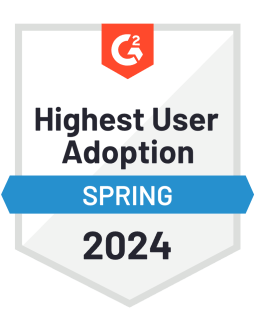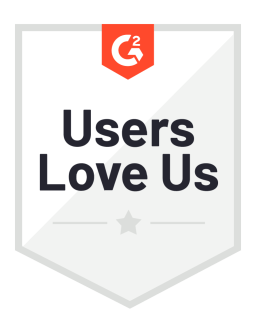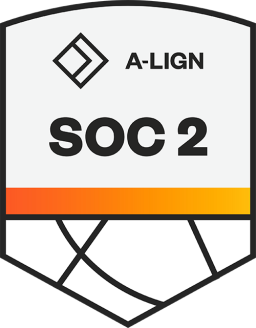The future of marketing is not only here, but it’s now in the past. AI marketing changed dramatically thanks to the launch of ChatGPT in 2022, and the rise of generative AI (GenAI) is now a key transformational force of disruption and innovation for all brands.
Simply put, AI marketing — specifically AI marketing tools — is a seismic shift that should influence not only how you engage customers, but also how to anticipate their needs. What started as largely a series of gimmicks, like generating an ad script in Ryan Reynolds’ natural tone of voice, can now be integrated into core marketing functions, from data-driven decision-making to real-time customer interactions.
Brands that harness AI marketing tools effectively can radically transform and improve their digital marketing, customer experience (CX), and social media strategies. Where should you start?
Certainly, AI evolves quickly, so staying informed and agile is key. Let’s explore how AI marketing is reshaping digital strategies, enhancing customer experiences, and setting new standards in creativity and efficiency.
What is AI marketing?
AI marketing is the use of artificial intelligence (AI) technology to automate processes like content development, data collection, and campaign analysis. It augments marketing initiatives to create faster operations, improve decision-making, and predict performance. Simply put, it increases speed, efficiency, and insights for your marketing organization.
AI is not new to marketing. As a tool, AI has been making lives easier for both customers and marketers for a while now. What’s changed is the ability to generate copy and creative assets at the scale that’s now available within the GPT framework, which is what ChatGPT and Emplifi AI Composer are developed upon.
GPT is a state-of-the-art language generation model trained on a massive amount of text data from the internet and can generate human-like text based on a given prompt. Even a quick test drive of ChatGPT can illustrate the platform's potential application for copy development in various functions like communications, public relations, customer care, and social media.
The platform reached 1 million users in just five days, and currently has more than 100 million weekly active users. Its popularity, as well as the continued rollout of new features like voice assistance, makes ChatGPT an inflection point for marketers looking for ways to integrate AI marketing technologies into their organization’s go-to-market strategy.
"[Our tools] are incredibly embryonic right now, but as they develop, the creativity boost and new superpowers we get—none of us will want to go back," said Open AI CEO Sam Altman in an interview with the Wall Street Journal.
GenAI is a partner, an assistant, or simply a new way to get work done faster. Regardless of how you use it, its part of a new wave of AI marketing tools that should now be foundational aspects of your strategy and process.
What is an AI marketing tool?
An AI marketing tool utilizes artificial intelligence technologies to automate, enhance, and personalize marketing tasks. These tools are designed to interpret vast amounts of data quickly, predict trends, and help teams make decisions that can improve marketing strategies, often in real-time.
By leveraging machine learning, natural language processing, and other AI methodologies, these tools can dramatically increase efficiency, improve the relevance of marketing messages, and provide deep insights into customer behavior.
While ChatGPT is one of the most recent and prominent examples, there are many other use cases for AI marketing tools available in the market.
AI chatbots: This software transforms customer service by providing real-time, personalized interactions that enhance user engagement and streamline support processes, typically on social channels or your website. AI chatbots help empower customers to answer more common support questions they may have, and free up human agents to handle more complex cases.
AI-powered analytics platforms: These platforms use AI to track and analyze customer interactions and campaign performance across digital channels, providing marketers with actionable insights and unified customer data to help brands refine their strategies and improve ROI.
Automated content management systems: These systems use AI to generate, optimize, and distribute content across multiple platforms. They can help ensure consistent messaging, provide insights on images, and free up human marketers to focus on strategy and creative processes.
Personalization engines: These AI-driven tools can help tailor website and email content to individual users in real-time based on their behavior and preferences and, as a result, help to enhance customer experience and engagement.
By incorporating these tools, marketers can automate routine tasks, uncover new opportunities, and create more dynamic and personalized customer experiences.
How do AI marketing technologies work?
According to the Harvard Business Review, AI marketing technologies are identified by four dimensions, including isolated versus integrated systems, and less advanced (task management) versus more advanced machine learning.
This means that, at their core, AI marketing technologies work based on available data, rules, and algorithms designed to perform a task. ChatGPT, for example, was trained to develop copy using billions of words from books, conversations, articles, and any text made available to the AI. The user enters a prompt – of any type – and receives AI-generated copy. The program can be trained and calibrated with more information, like social copy in your brand’s voice.
That’s only one example, certainly. Automation, and generative AI specifically, have significant potential to affect every layer of digital marketing and work hand-in-hand with traditional marketing tasks, including:
Brand governance: Utilize AI within your social media management platform to track posts using brand colors and photography.
Copy development: Generative AI can develop initial drafts of social copy, and with programs like Emplifi’s AI Composer, layer in tone, emojis, hashtags, or questions. You can also use this technology for customer interactions.
Digital marketing analytics: Track and evaluate campaign performance using AI analysis to quickly identify emerging trends.
Marketing automation: Create optimized subject lines and first drafts of email copy.
Social media sentiment: Evaluate sentiment with AI-powered tools to weed out non-applicable posts or mentions.Summarization & transcription: Quickly condense reports, product overviews, and any dense copy, and if necessary, transcribe webinars, podcasts, or videos requiring captions.
Topic & narrative research: Use AI-powered listening tools to evaluate potential thought leadership opportunities or gaps within your marketplace.
Web page development: Train generative AI to develop meta descriptions, optimized headline copy, and summarized product descriptions for your website.
The key with any of these tasks is that there remains a human component. For example, summaries could miss key details for your target persona. Social media copy might be a useful starting point for creating better, more natural social posts. And analytics could highlight trends that should be avoided to protect your brand.
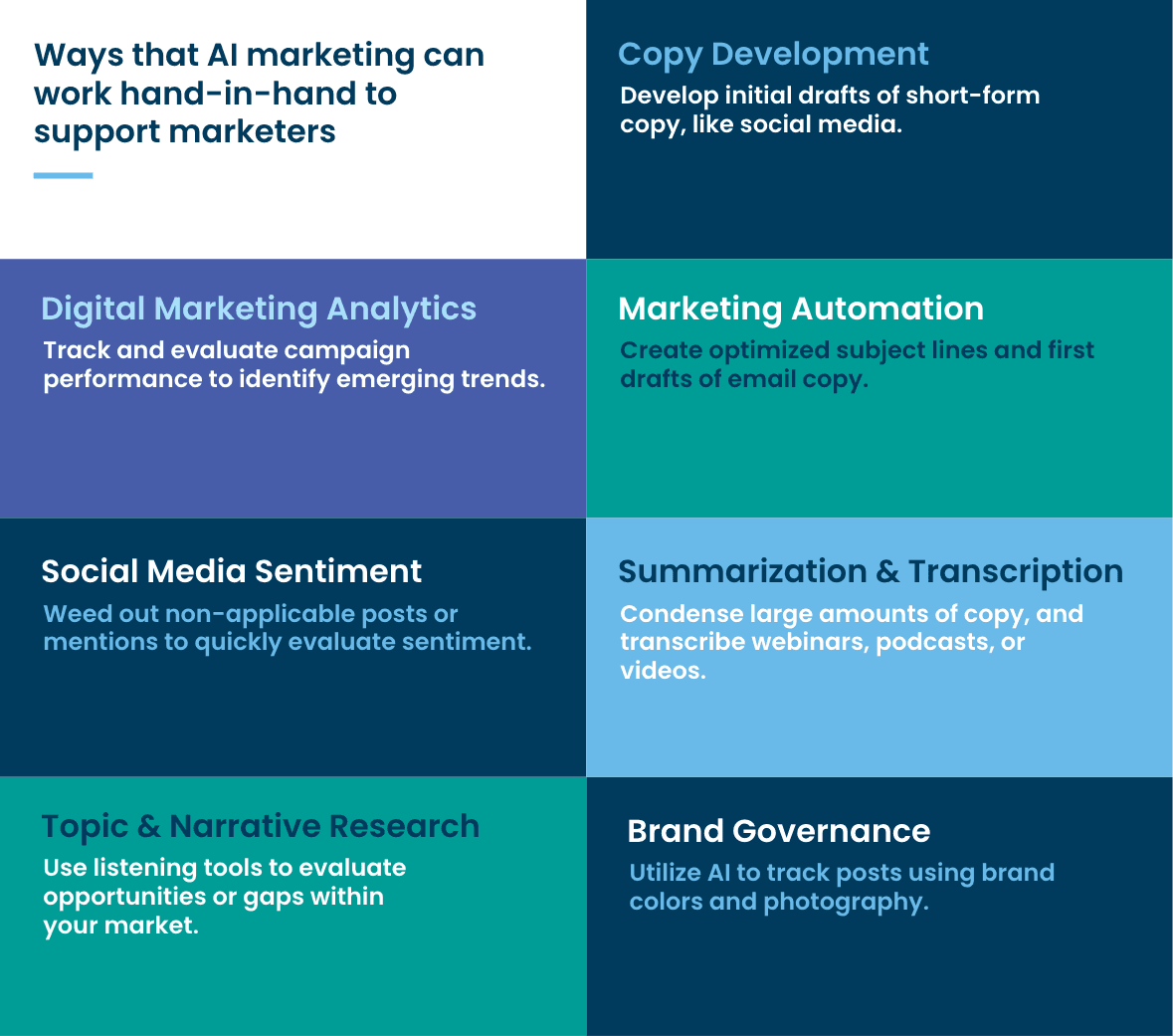
AI does not replace marketing (or marketers), but it can shift how your teams function. According to a December 2022 Gartner report, it was predicted that by 2025, "organizations that use AI across the marketing function will shift 75% of their staff’s operations from production to more strategic activities." That means tactical work transitions to AI-managed processes, and people can focus more on insights.

What are the benefits of AI in marketing?
The use cases for AI across marketing functions will continue to evolve. What won’t change, though, is the benefit of speed, efficiency, and insights that this technology can weave into your organization. Even if your roles and the responsibilities of specific marketers shift through this adoption, you’re building a marketing team that can scale. Here’s how:
Faster content development
Generative AI can always supply a helpful first draft that, through calibration and training, can speed up the creation of common needs like social media, email, or webpage copy. Iteration is the key to success, so it's important to maximize the benefit of AI with simple, focused, and repetitive tasks. That creates time for higher-concept thinking, editing, and ideation for your content professionals.
For brands that require reactive social presence (e.g., live events) or customer care, generative AI provides tools to boost response time and, therefore, improve customer engagement and experience.
Increased task efficiency
There are a significant number of day-to-day tasks that AI can support to improve performance for anyone in content, communications, customer experience, digital, social, and marketing operations. AI can automate tactical processes, organize data, and answer FAQs.
Improved personalization
Personalization is key to customer loyalty, and it can generate 40% more revenue for companies that excel at it. The backbone of personalization is customer data and analysis, meaning AI can improve that data collection, tailor experiences for your customers, and increase sales. This data improves your customers’ experience and develops actionable insights to help your business. Emails will make more sense, target apparel will tend to be just the right shade of blue, and landing pages will greet customers with content aligned with their needs, interests, and ideals.
Real-time performance analytics
AI monitoring can blend competitive intelligence, market trends, and campaign performance at speeds no analyst can. While performance analysis isn’t simple, the more information an organization has and the more marketers with the bandwidth to take action based upon that intelligence, the better for your brand.

What are some of the challenges of AI marketing tools?
Integrating AI into existing marketing systems presents several challenges, ranging from technical difficulties to strategic alignment. Here’s how companies can navigate these obstacles and effectively implement AI technologies in their marketing strategies.
Data compatibility and silos: Often, AI tools require large volumes of structured data to operate effectively. However, many organizations still work with legacy systems that produce incompatible or unstructured data. Data silos further complicate this issue, as information stored across disparate systems can be difficult to aggregate and analyze.
Skills gap: The lack of AI expertise or the understanding of AI capabilities within a marketing team can hinder the adoption and optimal use of AI technologies. This gap may lead to underutilization of advanced features or misalignment with business objectives.
Integration complexity: AI tools need to integrate seamlessly with existing marketing technologies, such as CRM systems, analytics platforms, and content management systems. This integration can be technically challenging and often requires custom solutions.
Cultural resistance: Certainly, your marketing team could feel like “The robots are coming for our jobs.” Organizational resistance is a common barrier. Team members may be skeptical about AI, fearing it might complicate existing processes or threaten their job security.
The solution to many of these challenges is to develop a comprehensive AI strategy that aligns with your overall business goals. This should include a clear roadmap for deployment, expected outcomes, and success metrics. Ensure all stakeholders understand the benefits and the role AI will play in enhancing their work — not replacing it.
Partnering with the right technology providers is crucial. Look for partners who offer not only advanced AI solutions but also robust support and integration services. They should understand your industry’s unique challenges and tailor their technology to meet your specific needs.
How to get started with AI marketing tools
The key is to start small. Generative AI is not HAL 9000, Skynet, or even Optimus Prime, although the latter is seemingly an iteration away from reality.
It’s a partner, an assistant, or simply a new way to get work done faster. Whether your organization utilizes it for social media copy or analytics, it has a role to play in your current and future marketing strategies. So, test, iterate, and innovate. Here’s a helpful path for starting your AI technology journey:
Start with a pilot: Organizational change should start within one function. Try an AI pilot within your social media team to test the technology, identify best practices, and expand purposefully into functions with similar applicability.
Reframe roles: Evaluate your current team to identify natural fits for working with AI marketing technology. Anyone in an operations role may be able to identify task management opportunities, and analytics-driven professionals will benefit from the advanced use of these tools. Be flexible and fluid as you align tasks with function and roles with purpose.
Scale around customer experience: AI might originate within your organization's social media or content teams, but it will always benefit from scale and holistic data. The more data that can inform an AI-driven marketing strategy, the greater the return. This means emphasizing technology platforms that bring these tools together with a 360-degree view of your customer. That ecosystem will shape greater experiences for customers and more insights for your marketing teams.
Learn how Emplifi’s Social Marketing Cloud – including Emplifi AI Composer, which leverages the OpenAI GPT framework – can help improve, augment, and amplify your marketing strategy. Speak with an Emplifi expert today.
Editor's Note: This article was originally published on January 13, 2023, and has been updated with recent research and insights.













